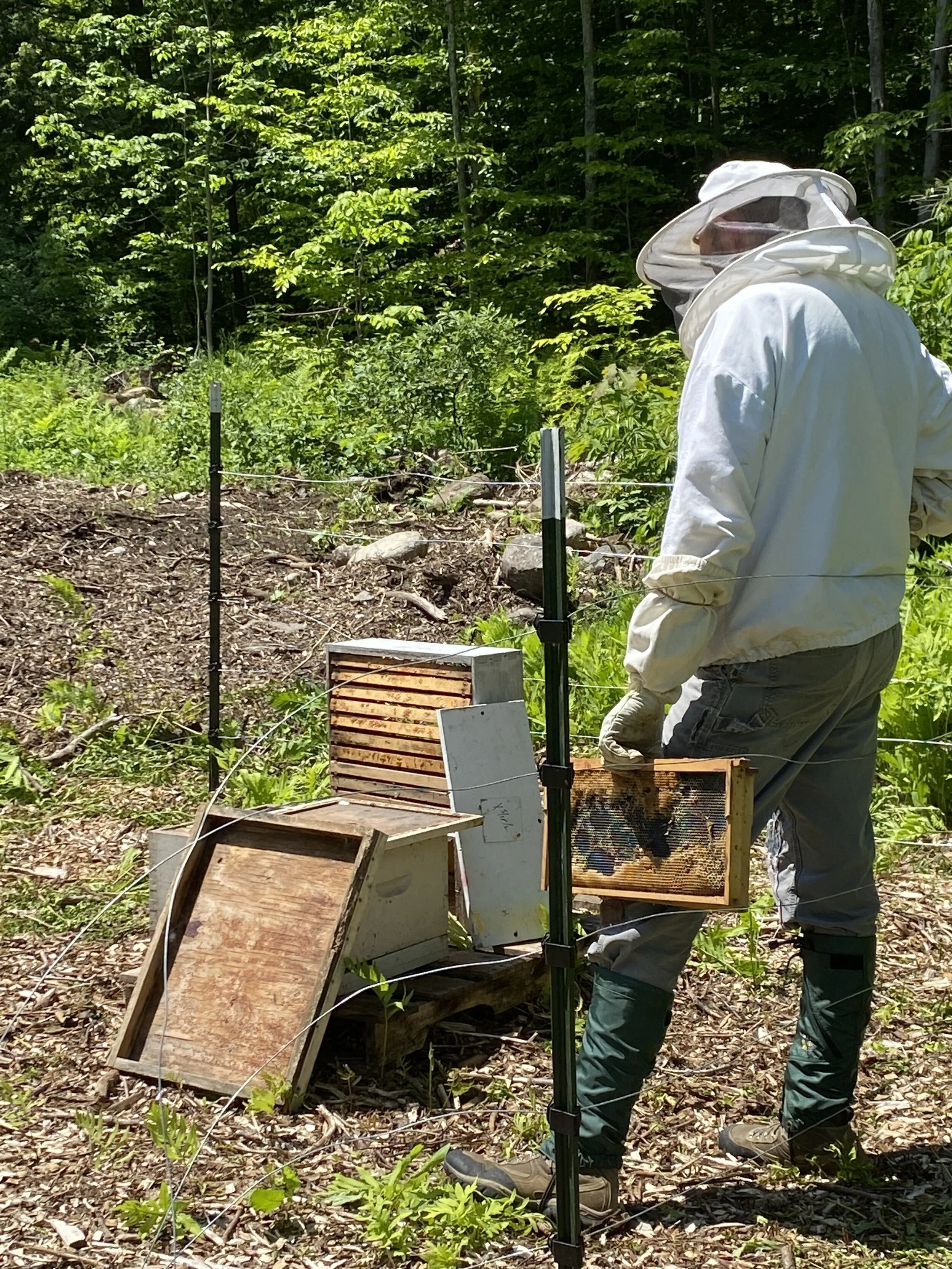3 things that beekeeping can teach caregivers about self care
/I have always been fascinated by honeybees—how they gather pollen on their hind legs (in anatomical structures called “baskets”—for real), their super-specific job specialization, and their intricate movements commuicating the location of prime flowers to their hive-mates. But until recently, I never really thought about how mindful bee tending can remind us how to care for ourselves even as we’re looking after others. Caregiving isn’t just for humans, after all!
To be clear, my husband and I have only had bees a short time—less than a week as of this writing. We’ve been planning to set up a hive for years and this spring gave us fhe first real chance to do so. We did our research, purchased supplies and set up bear-proof fencing (fingers crossed), in preparation for the arrival of our first nucleus colony. But even in just a couple of visits to the hive—at this point serving as assistants to our experienced neighbor and bee-mentor—it was clear that working with the bees safely can provide lessons in self-care for caregivers
be(e) prepared: This actually starts long before zipping up the white suit and donning the veil—I’ve been reading about beekeeping for years. And even before our neighbor carried the nuc box into our backyard, we discussed our intention for the day, gathering the tools we needed and deciding on a detailed plan of action. During our work within the fence we took the time to step back and re-evaluate, determining where to place components of the hive once it was open.
It helps to plan for caregiving events before they unfold. Because it usually involves someone else’s medical condition and others on the team (such as healthcare providers), so much about caring for others is out of our control. But having a general outline of events for any given day means that you can be sure to pack self-care essentials for yourself (a journal for between-appointment downtime, a nourishing snack, your favorite supportive essential oil and a do-anywhere breathwork practice) and be ready to adjust if the schedule dissolves. And remember, sometimes cancellations work in your favor, and you can grab a few moments of quiet sitting instead of racing to your next appointment.
be(e) present: When you’re working around thousands of flying insects with stingers on their nether regions, there’s nowhere else your mind can be. Bees can sting through suits, and even the thought of a handful of them buzzing around your veiled head can be a bit disconcerting. But focusing on the task at hand, and moving slowly and with purpose, means you’ll create the least amount of disruption to the hive and get your work done efficiently (and actually faster than if you were preoccupied).
Some of us may be champion multitaskers, but I studies have shown that focusing on one task at a time actually results in higher quality results. Take a moment to gather your intentions before running an errand so you don’t lose sight of your mission—you don’t really want to head back to the supermarket a second time, do you? And while sometimes the clock may seem to be moving through molasses while you’re sitting with your loved one, use that slowness to take the time to feel yourself inhabiting your body and really appreciate what you’re doing, and the difference you’re making in your person’s life.
be(e) together: Having a second set of hands—and eyes—around the hive can be really helpful. While one person runs a smoker to help calm the bees, the other can get to inspecting the hives and doing the hands-on work. There are plenty of beekeepers who work solo, but having the support of another person can lighten the load and make for a more pleasant hive visit.
Caregiving can be a very solitary experience. But it doesn’t have to be. Finding a community of like-minded people can make your role feel a little more bearable on the days when it’s challenging. It can bring a sense of lightness and ease to your days. And you just might be surporised at how your presence helps someone else—even when you’re just sharing a joke or story.
Bees themselves teach us a lot (I’ve got at least another blog post on that topic, now that we can observe our own hive). Whatever your self-care inspiration, tap into it so you can remember all the ways to support yourself while you’re caring for someone else.
Thumbnail and social photos by Bianca Ackermann on Unsplash
Just like in caregiving, while you’re tending to the hive it pays to have a plan for yourself before you get going

